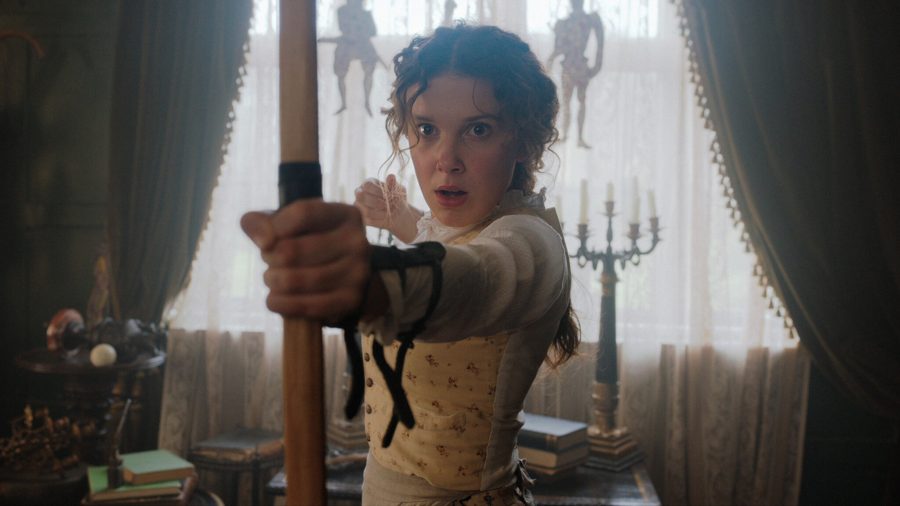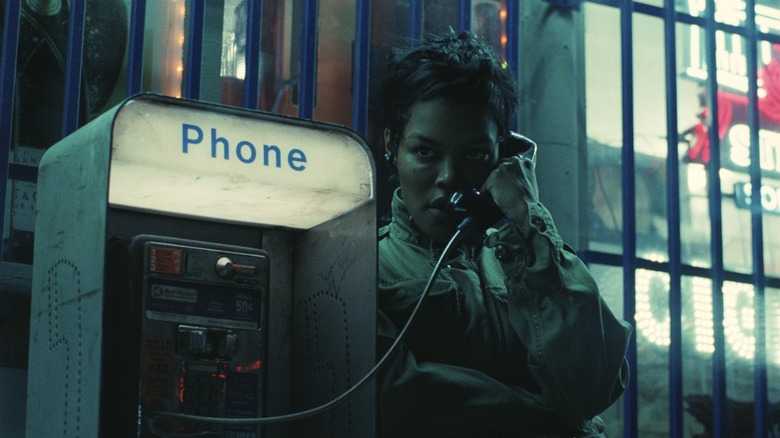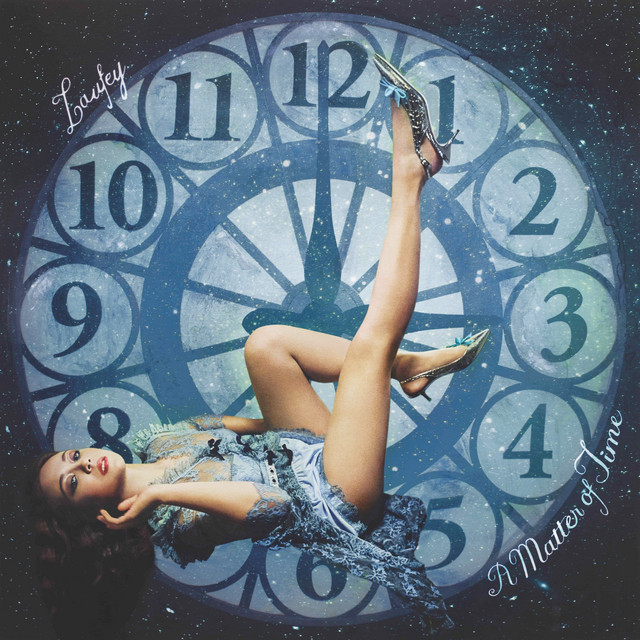Enola Holmes’s wit and charm excuse a plot that at times lacks clarity.
Based off of Nancy Springer’s novels, Enola Holmes (Millie Bobby Brown) is left to fend for her future when her mother, Eudoria Holmes (Helena Bonham Carter), disappears from the family estate on her 16th birthday. One might think that the arrival of her brothers, the famous Sherlock and Mycroft, would provide Enola with a sense of comfort in such trying times. However, this is not the case in late 19th century London as the misanthropic Mycroft (Sam Claflin) and kind, but aloof, Sherlock (Henry Cavill) are more preoccupied with sending Enola to finishing school to rectify her social impropriety and lack of education. It seems to Mycroft that Eudoria homeschooled Enola in literature, history, science, and martial arts — but nothing “useful.” Determined to uncover the truth about her mother, who is the key to protecting her independence, Enola flees the manor, stumbling upon a new plot and a new friend in the form of Marquess Tewkesbury (Louis Partridge), all while evading her brothers and Inspector Lestrade (Adeel Akhtar).
“Enola Holmes” is a charming film, though at a run time of two hours, it can sometimes feel a bit long. There are times when the plot and multiple storylines can be a bit confusing, but the occasional lack of clarity is hardly disengaging with Millie Bobby Brown on screen. In a typical Conan Doyle story, mysteries are formally presented to Sherlock who proceeds to solve the case in a structured, clever manner. Enola, on the other hand, has a very different style — her independent, spirited nature lands her in the midst of others’ troubles, and at times this chaos can make the plot feel vague. For example, an assassin threatens her and the Marquess’s survival on a train for some ambiguous reason that is not revealed until later on in the film. This kind of “find trouble now, investigate later” pattern is repeated in the movie which can be confusing by assigning importance to drastic scenes while simultaneously glossing over why these events are significant. As Enola recurrently finds herself in such situations, viewers have to just accept the events that unfold, trusting that all will be revealed in the end.
One of the movie’s biggest strengths is its cast. Brown captures viewers’ attention with impeccable comedic timing and self-aware quips to the camera. Through breaking the fourth wall, Brown gives Enola an omniscience other characters lack — making viewers feel like they have a secret friendship with the protagonist — adding to the amusing quality of her performance. Henry Cavill’s Sherlock is sentimental and emotive compared to other versions, while Sam Claflin turns Mycroft into a misanthropic meme; but the character dynamic works. Sherlock comes to respect Enola’s intelligence and understands how her place in the world is threatened by viewpoints similar to the one Mycroft holds. Helena Bonham Carter as Eudoria Holmes is briefly present at the beginning and ending of the film, but her effervescence and commitment to empowering her daughter through knowledge makes her character feel everlasting.
Furthermore, the setting of Suffragette London is a nice background for the events of the film and Enola’s character arc as an independent young woman who doesn’t conform to societal expectations. The costumes are aesthetically pleasing, and the incorporation of purple, green, and white colors is an ode to suffragette movements. In looking for her mother, Enola finds a speaker event that includes the names of real suffragettes, and reads Wollstonecraft during her homeschooled education. It’s details like this that tie the movie together and make its moving parts, plot, and characters feel like a cleverly pieced puzzle, even if it does take to the near end of the film to make sense of it.
Grade: A-
Creator: Nancy Springer
Starring: Millie Bobby Brown, Mary Parent, Paige Brown, Ali Mendes, Alex Garcia
Release Date: Sep 23, 2020
Rating: PG-13
Image courtesy of The New York Times.








